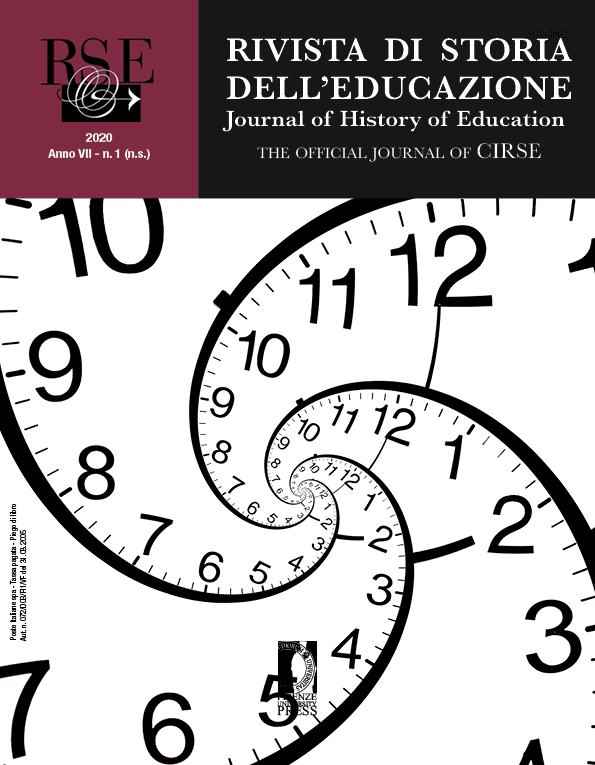On December 31,1962, the law n. 1859 was approved. It established the unified middle school, starting from the class of 1963-64. The Law, making secondary education compulsory, free and equal for all citizens, achieved a substantial application of Article 34 of the Constitution. The most important school reform of democratic Italy took place after years of discussion and unsuccessful attempts, despite this it was destined to impact with its effects, with its achievements and its shortcomings, the development of the education system in the following decades.
In 2013, on the occasion of the 50th anniversary of its establishment, the then «Nuovo bollettino CIRSE», offered a first picture of a scenario in full development of institutional, historical-scholastic, historical-pedagogical and historical-cultural studies on the subject. The current call for papers is in continuity with that study and wants to take into account, at the same time, how much approaches and methodologies have been enriched since then, offering new perspectives open to international and interdisciplinary suggestions that, especially in recent years, have contributed to the advancement of the history of education.
We are particularly interested in proposals focused on (but not necessarily limited to) the following themes:
- Comparisons of school reform projects: their cultural roots, and the political and labor groups involved.
- Overviews of the political, technical, and educational figures who faced the major school reform of republican Italy.
- Comparisons with other European and global reform paths.
- Surveys on curricular and disciplinary issues, from the debate on Latin to educational innovation.
- The impact of reform over the long term and in the broader landscape of educational levels.
- From Vestali della classe media to Lettera a una professoressa: the different critical approaches to reform.
- “New sources” for the study of schools (from television surveys to oral histories to the diaries of the teachers involved).
- The impact on the teaching profession, on its professional identity and on the teaching function.
- The myth of the reform: how it is recounted, remembered, denigrated today.
TIMELINE
An extended abstract of the proposal must be sent by May 27, 2022 (800 words) illustrating its contents, the theoretical framework of reference, the methodologies and documentation considered, its place in the literature on the subject, 3-5 keywords. The proposal must be accompanied by a brief bio of the authors (about 75 words).
Selection by the editors and the journal’s editorial staff will take place by June 10, 2022.
By December 31, 2022, authors must submit to the editors the complete manuscript, of no more than 8,000 words (about 45,000 characters), including bibliography and notes, drafted according to the editorial criteria adopted by the journal (click here to access the editorial rules).

